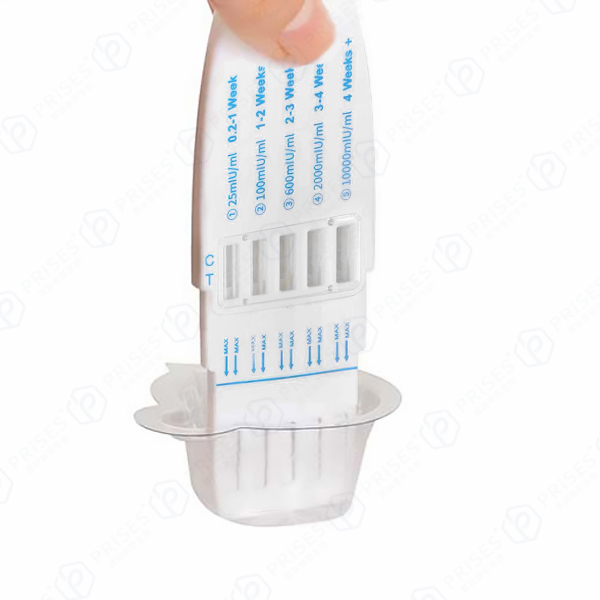Jan . 24, 2025 02:17 Back to list
hepatitis c virus lab test
Understanding the Importance of Hepatitis C Virus Lab Tests A Pathway to Effective Treatment and Health Management
Moreover, genotyping, another critical component of hepatitis C testing, identifies the specific strain of the virus. HCV has several genotypes, with each responding differently to available treatments. Knowing the genotype assists healthcare providers in tailoring the most effective treatment regimen for the patient, thereby improving treatment outcomes. Hepatitis C significantly impacts liver health, and thus, liver function tests are integral in assessing the extent of liver damage. These tests include a series of blood tests that evaluate the liver’s functionality, checking for enzymes and proteins released during liver damage. Elevated levels of liver enzymes, such as alanine transaminase (ALT) and aspartate transaminase (AST), often indicate liver inflammation or damage, prompting more detailed imaging studies or liver biopsies for comprehensive assessment. For individuals undergoing treatment for hepatitis C, continuous lab testing becomes indispensable. Regular monitoring through viral load tests helps evaluate treatment efficacy and guides necessary adjustments to therapy. Advances in antiviral medications have significantly increased cure rates, often referred to as “achieving sustained virologic response” (SVR), where the virus remains undetectable for an extended period after treatment completion. Achieving SVR greatly reduces the risk of developing liver-related complications, enhancing long-term health outcomes. The importance of hepatitis C lab tests extends beyond individual health benefits, impacting public health at large. Early and accurate diagnosis assists in controlling the spread of the virus, especially in community settings. Testing and subsequent treatment reduce the reservoir of the virus in the population, diminishing new infections and facilitating efforts to eradicate hepatitis C as a public health concern. In conclusion, comprehensive hepatitis C virus lab testing underpins effective health management strategies, providing critical insights into the presence, extent, and progression of the infection. Combining cutting-edge molecular diagnostics, genotyping, and liver assessments, these tests offer a pathway to tailored treatments and improved health outcomes. Empowered by accurate scientific data and expert healthcare guidance, patients can navigate their health journeys with confidence, reducing the public health burden of hepatitis C. Individuals are encouraged to seek routine testing, stay informed about advancements in diagnostic methodologies, and engage in proactive health discussions with medical professionals to ensure optimal care and well-being.


Moreover, genotyping, another critical component of hepatitis C testing, identifies the specific strain of the virus. HCV has several genotypes, with each responding differently to available treatments. Knowing the genotype assists healthcare providers in tailoring the most effective treatment regimen for the patient, thereby improving treatment outcomes. Hepatitis C significantly impacts liver health, and thus, liver function tests are integral in assessing the extent of liver damage. These tests include a series of blood tests that evaluate the liver’s functionality, checking for enzymes and proteins released during liver damage. Elevated levels of liver enzymes, such as alanine transaminase (ALT) and aspartate transaminase (AST), often indicate liver inflammation or damage, prompting more detailed imaging studies or liver biopsies for comprehensive assessment. For individuals undergoing treatment for hepatitis C, continuous lab testing becomes indispensable. Regular monitoring through viral load tests helps evaluate treatment efficacy and guides necessary adjustments to therapy. Advances in antiviral medications have significantly increased cure rates, often referred to as “achieving sustained virologic response” (SVR), where the virus remains undetectable for an extended period after treatment completion. Achieving SVR greatly reduces the risk of developing liver-related complications, enhancing long-term health outcomes. The importance of hepatitis C lab tests extends beyond individual health benefits, impacting public health at large. Early and accurate diagnosis assists in controlling the spread of the virus, especially in community settings. Testing and subsequent treatment reduce the reservoir of the virus in the population, diminishing new infections and facilitating efforts to eradicate hepatitis C as a public health concern. In conclusion, comprehensive hepatitis C virus lab testing underpins effective health management strategies, providing critical insights into the presence, extent, and progression of the infection. Combining cutting-edge molecular diagnostics, genotyping, and liver assessments, these tests offer a pathway to tailored treatments and improved health outcomes. Empowered by accurate scientific data and expert healthcare guidance, patients can navigate their health journeys with confidence, reducing the public health burden of hepatitis C. Individuals are encouraged to seek routine testing, stay informed about advancements in diagnostic methodologies, and engage in proactive health discussions with medical professionals to ensure optimal care and well-being.
Latest news
-
Highly Accurate hCG Pregnancy Test Strips - 5 Min Results
NewsAug.02,2025
-
Premium Empty ABS Plastic Cassettes: Durable & Lightweight Storage
NewsAug.01,2025
-
Accurate Cocaine (Coc) Rapid Test Kit | Fast & Reliable Detection
NewsJul.31,2025
-
Accurate HCG Pregnancy Test Strips | Fast Home Use Kit
NewsJul.31,2025
-
Reliable Early Pregnancy Test Kit Supplier - Multi Plastic Cassette Options
NewsJul.30,2025
-
Transferrin Rapid Test Cassette – Reliable Tumor Marker Detection
NewsJul.29,2025

